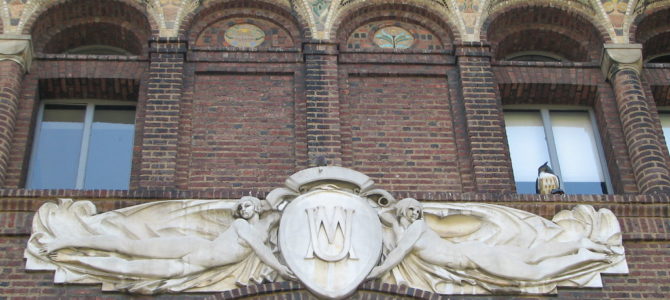
This week’s proposal by the radical left to bail out all student loans raises one obvious question: Why are students taking on so much student loan debt to begin with?
In many cases, universities raise tuition because they can, due in large part to the federal college subsidies the left wants to increase even more. But Rep. Alexandria Ocasio-Cortez (D-NY) raised another facet of the issue in a speech recently. She recounted the story of a young woman she mentored who faced $250,000 of debt: “She got into her dream college, but her dream college offered her no scholarships, just loans.”
"She got into her dream college but her dream college offered her no scholarships, just loans."
Rep. @AOC shares story of young woman she mentored who faced $250,000 of debt in order to attend her dream college. pic.twitter.com/9oUcfGtbCh
— The Hill (@thehill) June 24, 2019
Ocasio-Cortez and her mentee may not like it, but the university didn’t owe her a “free” education, no more than any other enterprise owes its customers “free” products. And if they would look past their complaints, they might find other options they find just as acceptable—and much more affordable.
I Turned the Ivy League Down
I know the dilemma of which Ocasio-Cortez speaks. Just more than two decades ago, I turned down the opportunity for an Ivy League education—not because I couldn’t get accepted to an Ivy League school, but because I couldn’t afford its offer of acceptance.
In the spring of 1997, the University of Pennsylvania offered me admission, but at a steep price. The combination of high tuition and a comparatively low amount of grant aid meant that I faced the highest out-of-pocket expenses there among the colleges that admitted me.
Two things about the “aid package” Penn offered stood out. First, the university expected a financial contribution from my non-custodial parent—in this case, my father. I called university officials and told them I was not speaking with my father, who refused to so much as fill out the financial aid application. But Penn refused to budge, because its policy at the time penalized children in my situation for the sins of their fathers.
Second, Penn’s aid package said the university would apply only half of my outside scholarship funds towards reducing my out-of-pocket tuition contribution. The other half of the outside scholarship funds I had raised would instead help the University of Pennsylvania, by reducing the grants the university offered.
To do everything I could to help my mother—and myself—financially, I had spent the better part of my senior year applying for scholarships. I applied for dozens of them, and won several, even a scholarship from the Women’s Club in my hometown. (Seriously.)
Having worked so hard to accumulate that scholarship money, I wasn’t about to let the University of Pennsylvania impose what amounted to a 50 percent “success tax” on those funds—reducing Penn’s grant to me by roughly $10,000 because I showed initiative, and found supplemental sources of aid.
Penn made my choice easy. Through its policies, the university acted like it expected me to pay through the nose for the privilege of going to an Ivy League school. I wasn’t about to do that—because, for one thing, I couldn’t afford it. More importantly, why would I go to a university that didn’t really act like it wanted me?
Comparison Is the Killer of Joy
I don’t bear ill will towards the University of Pennsylvania. The university made what it considered the rational decision at the time—as did I. I turned Penn down, and went to The American University instead. I received far more aid, retained all my outside scholarships, and kept my student loan debt (which I paid off more than a decade ago) to manageable levels.
Just as important: Even though American didn’t originally classify as my “dream college”—I only applied to the school begrudgingly, as a favor to my mother—I ended up having a wonderful four years. The faculty mentored and nurtured me, I made lasting friendships, and while living in Washington those four years, I began a career in policy that continues to this day.
As for the University of Pennsylvania, they ended up changing as well. Shortly after I turned down their offer of admission, in large part because I considered it unaffordable, the university became one of the first to announce policies replacing loans with grants as part of the financial aid package, and making the university tuition-free for working-class families.
To the extent that college admissions resembles an actual marketplace, actions like Penn’s show that institutions will respond (eventually) to their customers’ demands. Of course, making them even greater captives of the federal government will move them in the opposite direction, forcing them to flail about in response to demands from the radical left.
Ocasio-Cortez and her mentee may believe they have the right to demand a “free” university education—where they want, and how they want (to say nothing of with the grades they want). They don’t. But if they stopped complaining about the things they didn’t receive, and started focusing on the things they did—like an offer of acceptance at a more affordable university, which could in time prove just as enlightening as one’s “dream school”—they would end up far better off. As would we all.









